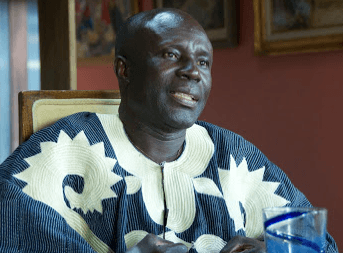Paramount Chiefs in the Western Region have commended the Petroleum Commission (PC) for its ongoing engagement with the House over the past decade.
However, they expressed their dissatisfaction with the conduct of certain operators in the oil industry.

Awulae Attibrukusu III, the Omanhene of Lower Axim, praised the Commission for its respectful approach but criticized some operators for failing to show the same regard for chiefs along the coastal areas.
The chiefs voiced their concerns during the annual engagement between the Petroleum Commission and the Regional House of Chiefs in Sekondi.
“Some operators delegate to individuals who lack decision-making authority, and they often respond with, ‘We must report back to our superiors for action.’ However, Egbert has demonstrated true leadership and respect,” he stated.
While some chiefs were discontented with the selection processes and the exclusion of traditional rulers in scholarship awards, others noted a lack of legacy projects in the coastal districts where these natural resources are located.
Obrempong Hima Dekyi XIV, the Paramount Chief of Upper Dixcove, expressed frustration that chiefs were not consulted in their communities before selecting students for scholarships.
He emphasized that community members who engage in voluntary communal labor often have children deserving of such recommendations.
Obrempong Dekyi highlighted the importance of holistic investment in human capital, where beneficiaries are carefully educated and nurtured to become better citizens. Awulae Agama Tuagyan, the Omanhene of the Gwira traditional area, echoed this sentiment.
Nana Akwesi Agyeman IX, the Omanhene of Lower Dixcove, questioned why oil companies had consistently failed to engage with paramountcies regarding their operations and social investment initiatives.
He urged these companies to make deliberate, annual investments in their communities through tangible projects that would endure rather than relying on past accomplishments.
Nana Kobina Nketsia V, the Omanhene of the Essikado Traditional Area, called for the responsible use of the nation’s natural resources. He stated, “We should not seek the cheapest methods of extraction that only yield ‘one percent’ or ‘two percent’ benefits for such valuable resources. Look at what is happening with lithium in that community.”
The Commission reported that there are currently 14 petroleum agreements in the country, with 12 operators across three fields.
Mr. Egbert Faibille, the Chief Executive Officer of the Commission, announced the creation of a Dispute Committee in all coastal districts aimed at preventing and resolving conflicts, as well as fostering collaboration for harmonious living through annual sensitization programs.
He noted that despite the challenges posed by COVID-19 and fluctuating oil prices, the Commission is committed to finding effective solutions to ensure the industry’s growth.
Mr. Faibille expressed gratitude to the Regional House of Chiefs for their significant support and contributions to promoting the sector, and the House acknowledged both Mr. Faibille and the Director of Local Content for their continuous assistance.
























































![[FREE FREE MONEY] Predict and Win a Guaranteed GH¢200 From Us EVERY WEEK](https://wordpress.ghanatalksradio.com/wp-content/uploads/2022/02/Predict-and-Win-Final-09-03-2021-218x150.jpg)
![[Predict & Win – 8th/Oct.] WIN A Guaranteed ¢200 From Us This Week](https://wordpress.ghanatalksradio.com/wp-content/uploads/2021/10/maxresdefault-16-218x150.jpg)
![[Predict & Win – 2nd] WIN A Guaranteed ¢200 From Us This Week](https://wordpress.ghanatalksradio.com/wp-content/uploads/2021/09/maxresdefault-50-218x150.jpg)
![[Predict & Win – 25th] WIN A Guaranteed ¢200 From Us This Week](https://wordpress.ghanatalksradio.com/wp-content/uploads/2021/09/maxresdefault-36-218x150.jpg)
![[Predict & Win – 18th] WIN A Guaranteed ¢200 From Us This Week](https://wordpress.ghanatalksradio.com/wp-content/uploads/2021/09/maxresdefault-23-218x150.jpg)







![[National cathedral] See full list of churches that have contributed since 2018](https://wordpress.ghanatalksradio.com/wp-content/uploads/2020/09/Ghana-National-Cathedral-GhanaTalksRadio-100x70.jpg)



